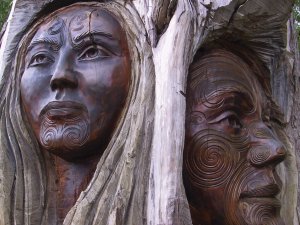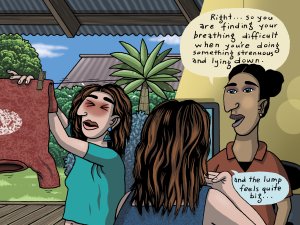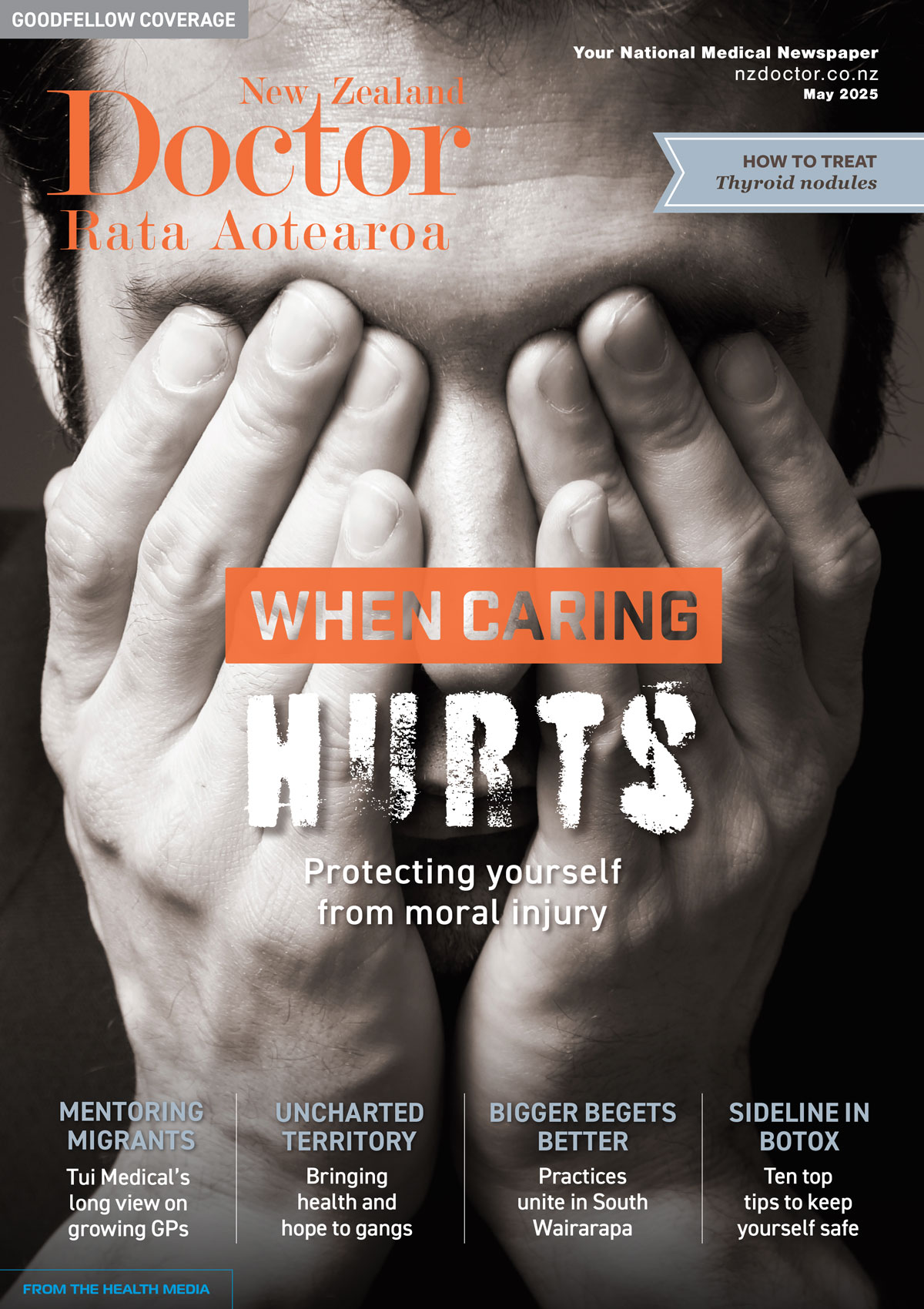Otolaryngologist, head and neck surgeon Francis T. Hall discusses the evaluation of thyroid nodules, which primarily aims to determine the likelihood of malignancy. He then reviews the treatment of thyroid nodules and thyroid cancer, including recent advances in management
Lack of political will leaves tāngata whaikaha Māori adrift
Lack of political will leaves tāngata whaikaha Māori adrift

Concerns are growing over the lack of political will to address long-standing issues that leave disabled people, particularly tāngata whaikaha Māori, with an uncertain future, writes Gabrielle Baker
It is plausible, if not likely, there will be tāngata whaikaha Māori and disabled people who miss out on services they would otherwise be entitled to
As Whaikaha – the Ministry of Disabled People told its incoming minister at the end of 2023, the current disability support system does not perform well for disabled people.
The Waitangi Tribunal Inquiry into Disability (as part of the Health Services and Outcomes Inquiry), which is currently under way, has also seen evidence from claimants and expert witnesses that the issues are more pronounced for tāngata whaikaha Māori (Māori with lived experience of disability).
Yet, after years of reviews and the establishment of Whaikaha to transform disability support services (DSS) to reflect the enabling good lives approach, the Government has decided to put a pin in making changes. It’s great news for the status quo but not for disabled people and their whānau. And, if history tells us anything, it will be Māori who are disproportionately impacted.1
To understand how a decision to move DSS funding from Whaikaha to the Ministry of Social Development, as announced by the minister for disability issues Louise Upston on 15 August, equates to maintaining the status quo probably requires some context, especially since before going to Whaikaha, DSS funding sat with the Ministry of Health.
The DSS system, as most of us know it, started to take shape in the 1970s with recommended closures of institutions and the Disabled Persons Community Welfare Act 1975, which provided for services in the community, a disability allowance and respite and carer support.2 It evolved further in the 1980s and 1990s, but by the 2000s, there was a question about whether DSS was keeping pace with the expectations of disabled people, as New Zealand citizens and the Government increasingly adopted the social model of disability (where disability is “not viewed as an attribute of a person, but rather a result from society’s failure to meet the aspirations and needs of people with lived experience of disability”).3
In 2008, the Social Services Select Committee reviewed supports available for disabled people and found services were fragmented. It recommended an approach that started with establishing a person’s requirements for a “good life” and then supporting them to access services to help them live that life, rather than determining and providing specified services for disabled people.4
In 2011, members of the disability community developed the Enabling Good Lives approach to increase choice and control for disabled people and their families.5 While the EGL approach sought to influence all aspects of government activity, its adoption by the Government meant that DSS needed to transform to provide more choice and control, and better outcomes, for tāngata whaikaha Māori and disabled people and their whānau.
When Whaikaha was established, it had three essential functions, one of which included transforming the disability support system to enable disabled persondirected support and the application of EGL principles. The DSS budget and contracts were therefore transferred from the Ministry of Health to Whaikaha, and as recently as March, the Waitangi Tribunal was told that Whaikaha’s approach to commissioning would mean that tāngata whaikaha Māori and disabled people would have a genuine choice in the services they receive.
But that is set to change. The announcement from Ms Upston that Whaikaha will transfer responsibility for DSS to the Ministry of Social Development by October 2024, that funding for residential care and service providers will be maintained at 2023/24 levels for now, and the expansion of the EGL approach will be paused, leaves little scope for genuine choice. It is a return to the status quo of the past two decades, and it is plausible, if not likely, there will be tāngata whaikaha Māori and disabled people who miss out on services they would otherwise be entitled to.

The recent chain of events bringing us here began in March this year, when Whaikaha issued surprise new rules on how disabled people and family carers could use funding. A change of minister followed the mishandling of this announcement. Then the new minister, responding to what she called “worrying advice” around financial risks, established an independent review of Whaikaha. The review confirmed the worry was justified – concluding that Whaikaha was ill-prepared for its role and that the acknowledged risk of the ministry spending more on DSS than was budgeted has eventuated in practice.6
However, this is ultimately a story of political will. The issue of “funding pressures” for DSS is described as a long-standing one by the independent review. Before 2019, overspending in DSS budgets was managed within Vote Health (presumably meaning underspends in other areas were used to cover DSS costs). Since then, costpressure bids have been sought yearly to cover potential overspending. Had there been political will from any government over the past 20 years, the DSS budget could have been permanently increased in line with demand or actual need. Similarly, if there had been political will under the previous Government, Whaikaha could have been set up to be something other than a “small agency” that was ill-prepared. If the current Government willed it, an alternative to transferring DSS to MSD could have been found (after all, this was not recommended by the independent review). And if there was still more political will, additional funding could be found to address cost pressures, rather than pausing any changes.
Whatever the cause, the recent decision maintains a disability support system that does not meet the needs of tāngata whaikaha Māori, disabled people and their whānau and means that, once again, this group is being asked to wait while the Government sorts itself out. The extent to which this disproportionately impacts Māori will also be something the Waitangi Tribunal will need to get its head around as it prepares to report on its findings on disability in the coming months.
Gabrielle Baker (Ngāpuhi, Ngāti Kuri) is an independent health policy consultant
TELL US WHAT YOU THINK
Send a Letter to the Editor to editor@nzdoctor.co.nz
We're publishing this article as a FREE READ so it is FREE to read and EASY to share more widely. Please support us and our journalism – subscribe here
One of the benefits of subscribing is you will also be able to share your thoughts about what you read with others in our Comment Stream. You can also take notes on what you read with Capture
- For example, in advice on the changes to funding rules in March, Whaikaha advised ministers that it expects “these measures would impact most on the families of those with the most complex needs, the Autism community, and potentially Māori and Pasifika”. Newsroom, 2 May 2024. Online. tinyurl.com/58t6nmdn
- For a brief summary of the history disability of disability in Aotearoa, visit tinyurl.com/4keph9k5
- Dr Paula King, 2019. Māori with Lived Experience of Disability, Part I Report, prepared for the Waitangi Tribunal. Available online at tinyurl.com/ycddw6sx
- A summary of the committee report is available on the Office for Disability Issues website, tinyurl.com/ms589p56
- tinyurl.com/yfa6zst7
- tinyurl.com/5fe2nxeu








![New Zealand Doctor Rata Aotearoa editor Barbara Fountain, RNZCGP president elect and Tauranga-based specialist GP Luke Bradford, Ministry of Health clinical chief advisor rural health Helen MacGregor, and Health New Zealand Te Whatu Ora clinical director primary and community care Sarah Clarke [Image: NZD]](/sites/default/files/styles/thumbnail_cropped_100/public/2025-05/1.%20Barbara%20Fountain%2C%20Luke%20Bradford%2C%20Helen%20MacGregor%20and%20Sarah%20Clarke.jpg?itok=091NETXI)
![Ngāti Porou Oranga specialist GP Elina Pekansaari and Te Nikau Hospital specialist in general practice and rural hospital medicine David Short [Image: NZD]](/sites/default/files/styles/thumbnail_cropped_100/public/2025-05/2.%20Elina%20Pekansaari%20and%20David%20Short.jpg?itok=h5XfSBVM)
![Locum specialist GP Margriet Dijkstra and OmniHealth regional operations manager (southern) Patricia Morais-Ross [Image: NZD]](/sites/default/files/styles/thumbnail_cropped_100/public/2025-05/3.%20Margriet%20Dijkstra%20and%20Patricia%20Morais-Ross.jpg?itok=jkrtRfJC)
![Golden Bay dairy farmer and dairy industry health and safety doctoral student Deborah Rhodes, and Golden Bay Community Health specialist GP Rachael Cowie [Image: NZD]](/sites/default/files/styles/thumbnail_cropped_100/public/2025-05/4.%20Deborah%20Rhodes%20and%20Rachael%20Cowie.jpg?itok=oM0_GcJc)
![Hauora Taiwhenua clinical director rural health Jeremy Webber, Australian College of Rural and Remote Medicine president Rod Martin and Observa Care director of business operations Deborah Martin, the wife of Dr Martin [Image: NZD]](/sites/default/files/styles/thumbnail_cropped_100/public/2025-05/5.%20Jeremy%20Webber%2C%20Rod%20Martin%20and%20Deborah%20Martin%2C%20the%20wife%20of%20Dr%20Martin.jpg?itok=P_aGmX_H)
![Spark Health chief executive John Macaskill-Smith and client director Bryan Bunz [Image: NZD]](/sites/default/files/styles/thumbnail_cropped_100/public/2025-05/6.%20John%20Macaskill-Smith%20and%20Bryan%20Bunz.jpg?itok=5yJvVZ0I)
![Associate dean (rural) Kyle Eggleton, third-year medical student Roselle Winter, and second-year pharmacy student Alina Khanal, all from the University of Auckland [Image: NZD]](/sites/default/files/styles/thumbnail_cropped_100/public/2025-05/7.%20Kyle%20Eggleton%2C%20Roselle%20Winter%20and%20Alina%20Khanal.jpg?itok=RQLd3TEs)
![Health New Zealand Te Whatu Ora clinical editor and specialist in general practice and rural hospital medicine Anu Shinnamon, and Whakarongorau chief clinical officer Ruth Large [Image: NZD]](/sites/default/files/styles/thumbnail_cropped_100/public/2025-05/8.%20Anu%20Shinnamon%20and%20Ruth%20Large.jpg?itok=i5TMswY9)
![Te Kahu Hauora Practice specialist GP Jane Laver and Ngāti Kahungunu ki Tāmaki-nui-a-Rua chief operations manager Tania Chamberlain [Image: NZD]](/sites/default/files/styles/thumbnail_cropped_100/public/2025-05/9.%20Jane%20Laver%20and%20Tania%20Chamberlain.jpg?itok=jtMklaCZ)